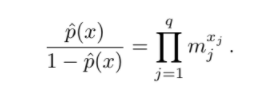The Theory of Bullshit
I haven't read H.G. Frankfurter's book yet, but I find interesting his assertion that "we" (society?) have no theory of it yet. Stepping away from it's literal meaning, describing feces of a bull, bullshit describes a type of speech and statements correlated with incorrect, false, misleading or made up arguments. A common misperception is that such language is often used and needed in politics and advertising, it is however certainty that bullshit is not confined exclusively to any particular area of human activity.
"One of the most salient features of our culture is that there is so much bullshit. Everyone knows this. Each of us contributes his share. But we tend to take the situation for granted. Most people are rather confident of their ability to recognize bullshit and to avoid being taken in by it. So the phenomenon has not aroused much deliberate concern. We have no clear understanding of what bullshit is, why there is so much of it, or what functions it serves. And we lack a conscientiously developed appreciation of what it means to us. In other words, as Harry Frankfurt writes, "we have no theory."
Indeed, I think there is a very valid point in trying to understand the nature and sociological value or cost of bullshit in society and its relation to politics in general and power in particular, as it seems lying at least requires acknowledgment of the truth, whereas producing bullshit seems immune to this constraint.
"It is impossible for someone to lie unless he thinks he knows the truth. Producing bullshit requires no such conviction. A person who lies is thereby responding to the truth, and he is to that extent respectful of it. When an honest man speaks, he says only what he believes to be true; and for the liar, it is correspondingly indispensable that he considers his statements to be false. For the bullshitter, however, all these bets are off: he is neither on the side of the true nor on the side of the false. His eye is not on the facts at all, as the eyes of the honest man and of the liar are, except insofar as they may be pertinent to his interest in getting away with what he says. He does not care whether the things he says describe reality correctly. He just picks them out, or makes them up, to suit his purpose."

"One of the most salient features of our culture is that there is so much bullshit. Everyone knows this. Each of us contributes his share. But we tend to take the situation for granted. Most people are rather confident of their ability to recognize bullshit and to avoid being taken in by it. So the phenomenon has not aroused much deliberate concern. We have no clear understanding of what bullshit is, why there is so much of it, or what functions it serves. And we lack a conscientiously developed appreciation of what it means to us. In other words, as Harry Frankfurt writes, "we have no theory."
Indeed, I think there is a very valid point in trying to understand the nature and sociological value or cost of bullshit in society and its relation to politics in general and power in particular, as it seems lying at least requires acknowledgment of the truth, whereas producing bullshit seems immune to this constraint.
"It is impossible for someone to lie unless he thinks he knows the truth. Producing bullshit requires no such conviction. A person who lies is thereby responding to the truth, and he is to that extent respectful of it. When an honest man speaks, he says only what he believes to be true; and for the liar, it is correspondingly indispensable that he considers his statements to be false. For the bullshitter, however, all these bets are off: he is neither on the side of the true nor on the side of the false. His eye is not on the facts at all, as the eyes of the honest man and of the liar are, except insofar as they may be pertinent to his interest in getting away with what he says. He does not care whether the things he says describe reality correctly. He just picks them out, or makes them up, to suit his purpose."




Comments